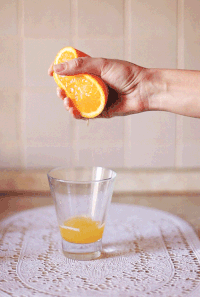Eating The Zen Macrobiotic Way
A macrobiotic diet (or macrobiotics), is a nutritional philosophy focused on eating foods based on a person’s health status, climate, seasonality of crops, age, gender, and geography among other considerations. There is not a singular dietary regimen, as the diet is based on a variety of supposed variables, which take many forms. Major principles of macrobiotic diets are to reduce animal product, eat locally grown foods that are in season, and consume meals in moderation. Other forms of the diet incorporate principles of medical systems, such as traditional Chinese medicine, in which an attempt is made to balance the yin and yang elements of food and cookware.
What follows is a general listing of the do’s and don’ts of a macrobiotic diet:
- No industrialized food or drink such as sugar, soft drinks, dyed food, non-fertilized eggs, canned or bottled food.
- Do not take any fruits and vegetables that are artificially produced with chemical fertilizers and/or insecticides.
- Do not take any food that comes from a long distance since it requires preservatives that are very harmful.
- Do not use any vegetable out of season.
- Absolutely avoid the most Yin vegetables: potatoes, tomatoes, and eggplant.
- Take no spices or chemical seasonings (all commercial Japanese soy sauce and miso included). Exceptions: natural sea salt, Macrobiotic soy sauce and miso approved by the Ohsawa Foundation.
- Coffee is prohibited. Do not use tea containing carcinogen dyes. This includes most varieties that are available commercially. Japanese bancha tea and Chinese natural tea (undyed) are permitted.
- Practically all animal food such as chicken, pork, beef, butter, cheese and milk, is chemically produced or treated. Avoid these. Most wild birds, fresh fish and shellfish, by contrast are free from chemicals. They may be used occasionally.
- Yeast, as defined in the Oxford English Dictionary, is a yellowish substance that is produced as froth or sediment during the alcoholic fermentation of malt worts and other saccharine fluids. Since yeast, therefore, is sugar-based, those foods that contain it are to be eaten in small quantities.
- Baked good that contain baking soda are not used. The soda promotes rapid-rising and expansion in a dough mixture. As such, it is too Yin to be part of a balanced, healthful diet.
Source: Zen Macrobiotics



